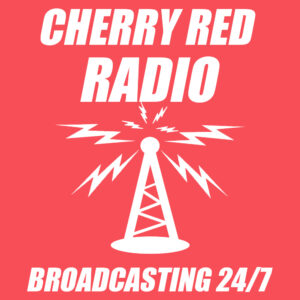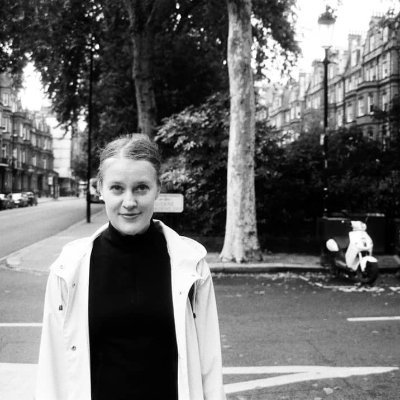The quarterly survey on Official Rajar (Radio Joint Audio Research) shows that 88% of people living in the UK still listen to the radio at least once a week. Although an overwhelming proportion of the number is the audience of BBC, a listenership of what they call “other radio” (read non-commercial and independent) constitute nearly 10%.
Unlike in the US, where the term independent radio denotes all non-commercial stations, the same type in the UK defines privately owned media aka Independent Local Radio as well as small grassroots broadcasters. Even though now the idea of independence, especially with the contemporary version of ILR, is undermined by corporate standards, these stations were initially taking shape as an alternative to the BBC. Nearly fifteen years before the idea of Independent Local Radio was approved, the official broadcaster and the country’s conservative government were fighting offshore pirate stations, considered now as the progenitors of today’s indie radio.
Although many pirate stations were closed in the 1960s, the format of non-profit indie radio hasn’t vanished. During the pandemic, some stations and radio shows received funding from the government. The Audio Content Fund scheme guaranteed financial support to independent broadcasters and creators in the UK. From 2019 to 2022, it funded 350 stations.
Still, those who run non-commercial stations now admit that it’s getting harder to carry on. In 2022, The Guardian unveiled difficulties experienced by independent broadcasters amidst the approaching cost of living crisis. The article outlined different funding scenarios hinting at a few categories of the non-commercial broadcasters. Although most rely either on public funding or brand partnership, some stations are sponsored by bigger companies, such as independent label or other side businesses running them. In this case, the radio format serves as a vehicle for business promotion.
Public funding is a way to keep an independent station afloat. One of the most popular indie broadcasters NTS Radio has relied on the support of its listeners since its humble beginnings back in 2011. The radio has different subscription schemes enabling the audience to link up in private Discord channels, build out their wantlist with enhanced NTS tracklists, or submit a mix for playout on NTS through Supporter Radio.
Many stations rely on brand partnership which implies mutual promotion, sponsoring and content creation. For example, the aforementioned NTS has collaborated with well-known brands such as Adidas, Carhartt, Johnnie Walker and Uniqlo. This option also suits broadcasters that aim at reaching out to a local community. A mouthpiece of South West London, Riverside Radio collaborates with companies and businesses based in Richmond, Wandsworth, Merton and Lambeth. The broadcasting activity is enhanced by live events that the team runs in these four boroughs.
 For some independent businesses, the radio format serves as a tool which enables better communication with their audiences. Launched in 2020, Cherry Red Radio informs about new releases of the pivotal independent record label – Cherry Red Records. Yet, the format is far from a dry listing of forthcoming albums. Permeated with facts, figures and funny stories, it is an amusing lesson on music history, occasionally mentioning interesting findings and releases by like-minded record labels. Cherry Red Radio exists in two formats – as a monthly show and as a 24/7 station. The latest episodes of the former can be streamed on Spotify and YouTube. It is noteworthy that Cherry Red is the only independent label in the UK that runs its own radio station.
For some independent businesses, the radio format serves as a tool which enables better communication with their audiences. Launched in 2020, Cherry Red Radio informs about new releases of the pivotal independent record label – Cherry Red Records. Yet, the format is far from a dry listing of forthcoming albums. Permeated with facts, figures and funny stories, it is an amusing lesson on music history, occasionally mentioning interesting findings and releases by like-minded record labels. Cherry Red Radio exists in two formats – as a monthly show and as a 24/7 station. The latest episodes of the former can be streamed on Spotify and YouTube. It is noteworthy that Cherry Red is the only independent label in the UK that runs its own radio station.
Some businesses with access to recording facilities, e.g. recording studios, also run their own radio stations. Based in North London, Islington Radio is a community station performing multiple functions for musicians and other industry professionals. Part of Box Media Group, the studio offers recording, mixing and mastering services alongside podcast, radio and audiobook production. Additionally, Islington Radio opened its vegan and vegetarian cafe on the premises of Archway Tavern, a local venue also owned by Box Media.
Needless to say, changing listening habits combined with financial ups and downs create more obstacles for independent stations. Earlier this year Spotify introduced an AI DJ feature where users’ favourite tracks are accompanied with informative comments and amusing remarks. Still, despite the overwhelming popularity of the streaming platform, this new function has received criticism, with many people feeling that it is not necessary. Unlike any AI-generated feature, real hosts are not intrusive giving their audience freedom to navigate through the station. Manifested by crowd-funding schemes, the community support proves that independent stations are still very much on-demand. Long may they thrive.



